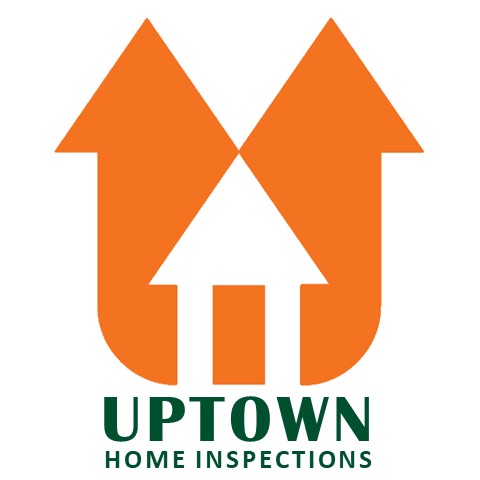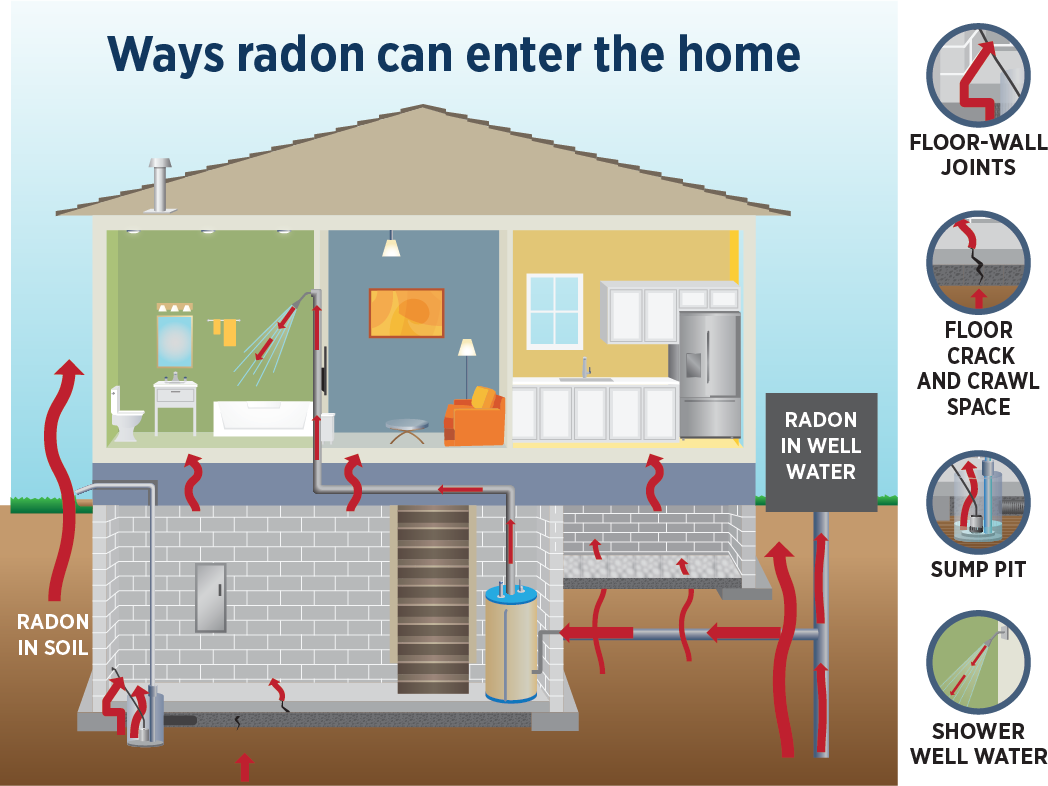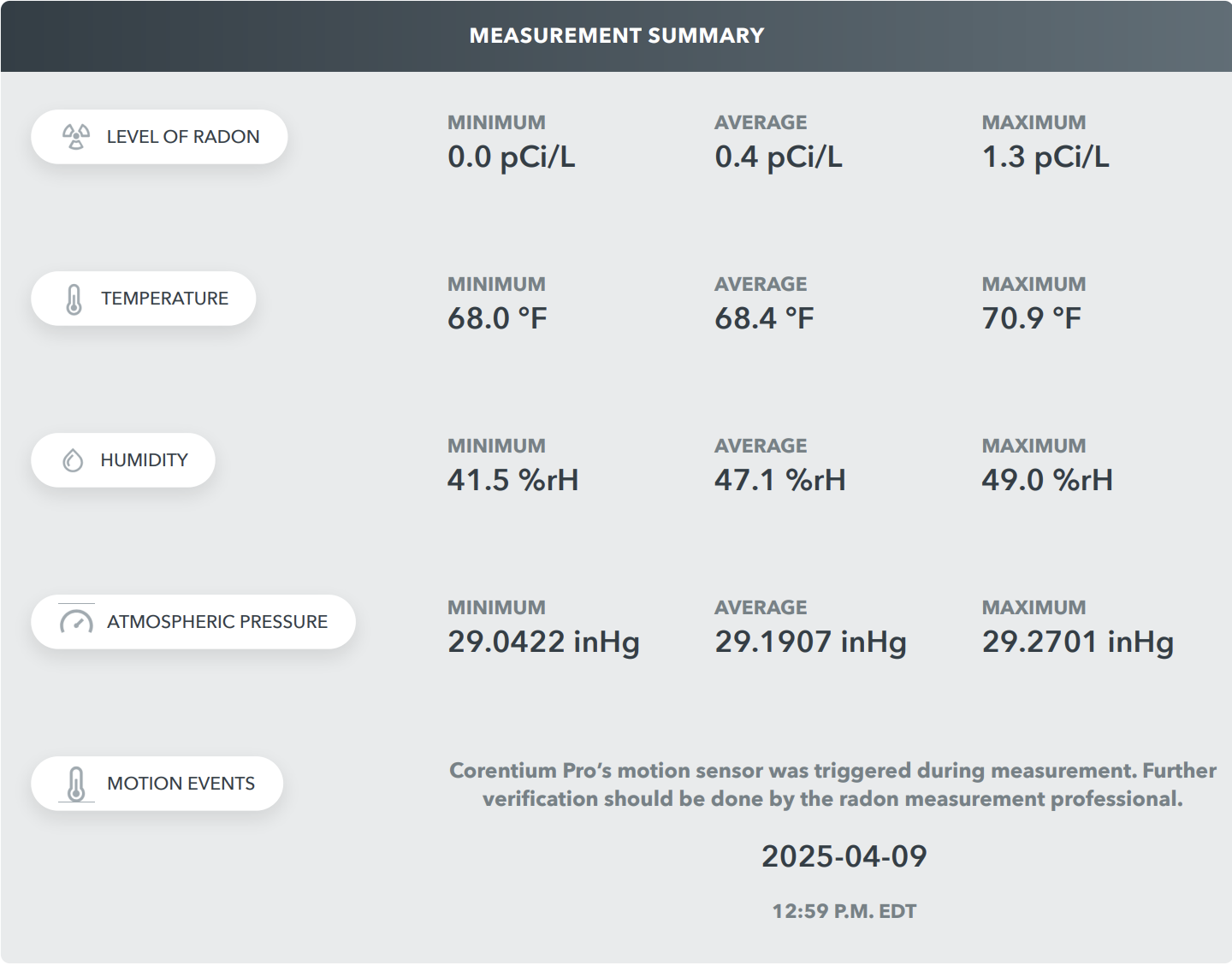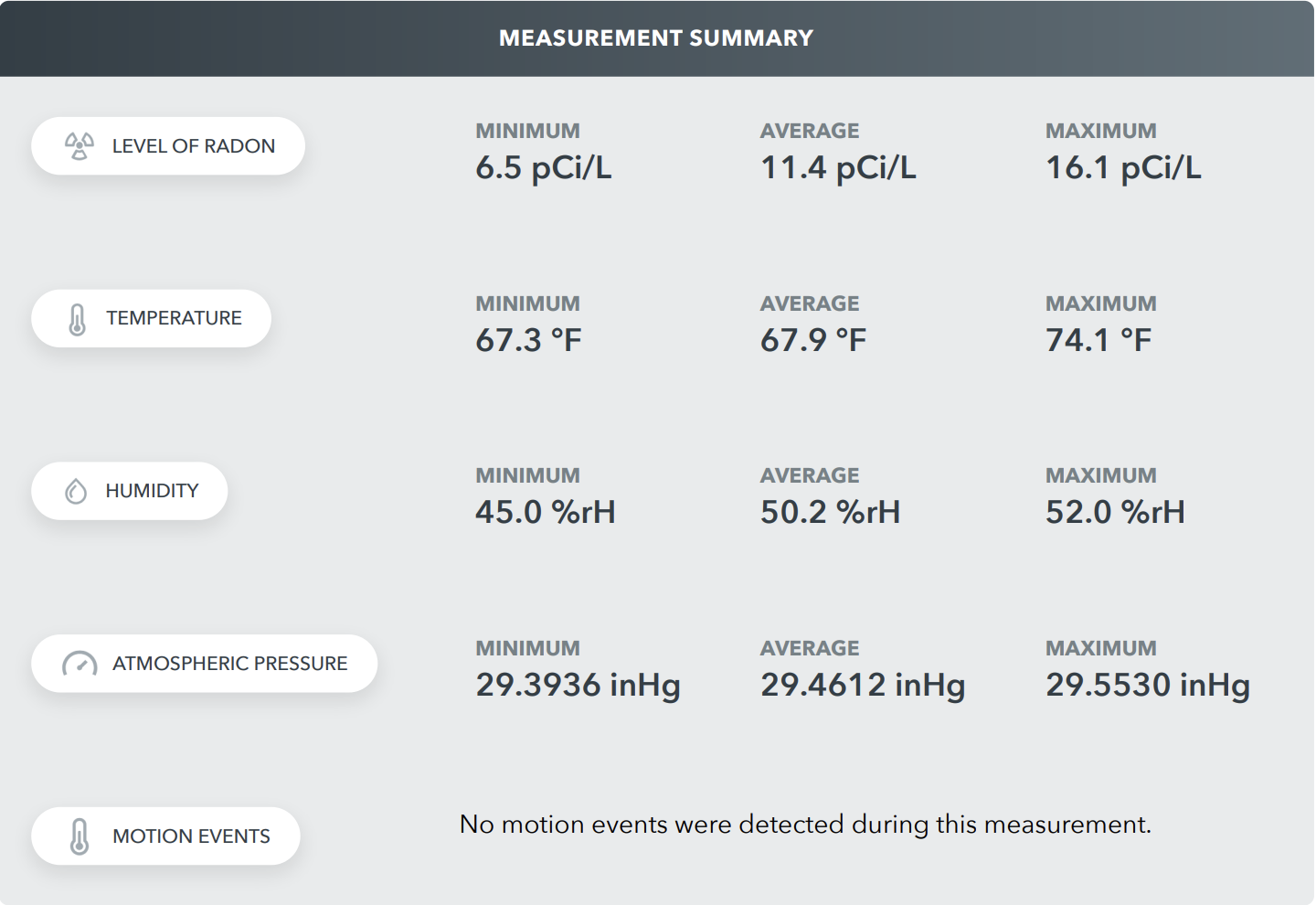Our radon testing is affordable and can be bundled with a full home inspection. Check out our booking page for current pricing and availability.
-
Radon Gas Testing
-
Radon is a colorless, odorless, and tasteless radioactive gas that forms naturally in soil, rock, and water. It can seep into homes through cracks in the foundation, crawlspaces, or basements—and prolonged exposure is the second leading cause of lung cancer in the U.S.
-
Radon is undetectable without proper testing, yet it can accumulate to dangerous levels indoors. The only way to know your home’s radon level is through professional testing. Early detection is key to protecting your health and your family’s.
-
We use EPA-approved electronic radon monitors. These are placed in the lowest livable level of your home and left for 48 hours to get an accurate reading. We analyze the results and provide you with a certified report.
-
According to the U.S. Environmental Protection Agency (EPA), radon levels at or above 4.0 pCi/L (picocuries per liter) are considered hazardous and should be mitigated. However, even levels between 2.0 and 3.9 pCi/L may pose health risks and should be monitored or reduced if possible.
-
Sample Radon Result Below 4.0 pCi/L - No Remediation Needed
-
If radon levels are elevated, we’ll walk you through next steps, including radon mitigation options. This typically involves installing a venting system that draws radon out from beneath the home and safely releases it above the roofline.
-
Sample Radon Result Above 4.0 pCi/L - Immediate Remediation Needed
-
Absolutely. Buyers should request a radon test during the inspection period to avoid surprise health risks. Sellers can benefit from testing before listing to ensure their home is safe and market-ready. Some lenders may even require it.
-
Radon can be found in any home, in any state—regardless of new construction or old. Levels can vary drastically from one home to another, even on the same street. That’s why testing is the only reliable way to know your risk.
Radon Presence in Georgia: 1 in 15 homes in Georgia has elevated radon levels. This statistic emphasizes the prevalence of radon in residential properties in the state, underlining the importance of testing, especially for those considering buying or selling a property.
-
The EPA recommends testing every 2–3 years, or after any major renovation, change in HVAC systems, or if you've added a basement living space.
-
Certified radon inspectors
Accurate, up-to-date testing equipment
Clear, fast results with full explanation
Trusted local reputation
No scare tactics—just honest, expert reporting



